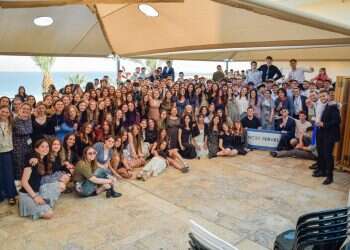On the Tenth of Tevet, designated by Israel's Chief Rabbinate as a day of remembrance for Holocaust victims whose death dates remain unknown, attention turns to one of the Holocaust's most devastating yet lesser-documented killing sites: the Ponary Forest.
Following their June 22, 1941 invasion of Lithuania, German forces implemented a unique method of systematic extermination. Unlike the concentration camp model employed elsewhere, the Lithuanian operation utilized existing forest landscapes as execution grounds. The Germans commandeered local Jews from towns and villages, transporting them to nearby forests where they were forced to dig their own graves or, as in Ponary's case, utilized pre-existing pits.
The Ponary killing site, situated approximately 6 miles from central Vilnius, exemplifies the brutal efficiency of this approach. German forces appropriated eight large pits originally intended for fuel storage, each spanning 98 feet in diameter and reaching the depth of a two-story building. The site's strategic value stemmed from its railway access and natural concealment from Allied reconnaissance.

Between 1941 and 1944, these pits became mass graves for approximately 100,000 victims, including 70,000 Jews. The scale of this atrocity becomes particularly stark when considering that the death toll equals the population of a medium-sized Israeli city, all murdered within an area comparable to a shopping center parking lot.
The killing process followed a chillingly methodical pattern. After the liquidation of the Vilnius ghetto, victims arrived by train at Ponary station. In a cruel psychological manipulation, German authorities forced some Jews to write postcards describing the site as a pleasant labor camp before leading them to their execution. These messages, reaching families after their loved ones' deaths, served as a devastating form of deception.
Lithuanian collaboration proved particularly extensive. Local auxiliaries managed victim lineups at the pit edges, where German forces conducted the executions. Journalist Kazimierz Sakowicz documented not only the afternoon gunfire but also the systematic looting of victims' belongings by local residents, who established impromptu markets for stolen clothing and possessions.
As German military defeats mounted, authorities initiated "Order 1005" to eliminate evidence of their crimes. This operation forced approximately one hundred Jewish prisoners to exhume and burn corpses. Physical evidence of this gruesome task remains visible today in the form of a conveyor-like apparatus used to raise bodies from the pits.
Yet amid this darkness, research reveals that approximately ten percent of Lithuania's wartime population actively assisted Jews. Yad Vashem has recognized 900 Lithuanians as Righteous Among the Nations, the second-highest per-capita rate globally. This figure represents only those who risked their lives to save Jews, excluding thousands who provided food, medicine, or temporary shelter.
Lithuania's contemporary relationship with this history proves complex. While it stands as the only nation outside Israel to establish a formal Holocaust commemoration day (September 26, marking the Vilnius ghetto's liquidation), local attitudes remain mixed. Reports indicate that Ponary village youth have repurposed some killing site paths as bicycle tracks, while other pits serve as recreational areas, highlighting ongoing tensions between memorialization and normalization.
Today's Ponary Forest presents a deceptive tranquility. A three-story monument, augmented in 2005 with a plaque commemorating Israeli President Moshe Katsav's visit, stands amid the towering trees. The site's profound silence, broken only by visitors' footsteps, belies its horrific history. Memorial stones in Lithuanian mark various pits, while the 984-foot distance between the village and killing grounds raises enduring questions about civilian complicity and witness.
For contemporary visitors, particularly Jewish tourists to Vilnius, Ponary represents not merely a historical site but a moral imperative. Its grounds demand witness not only during formal commemoration days but as an essential testament to both humanity's capacity for evil and the critical importance of remembrance.
This sacred obligation to remember transcends traditional tourism, establishing Ponary as a crucial pilgrimage site for understanding the full scope of the Holocaust's devastation.




